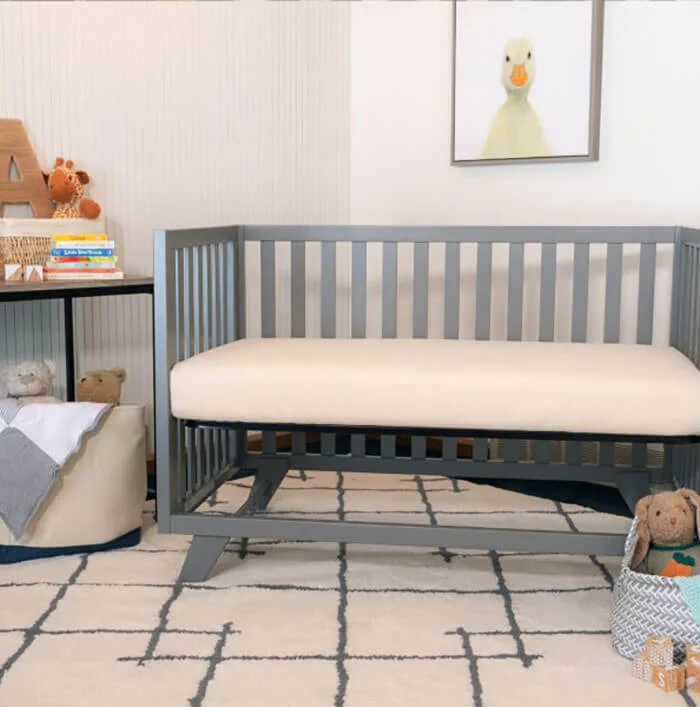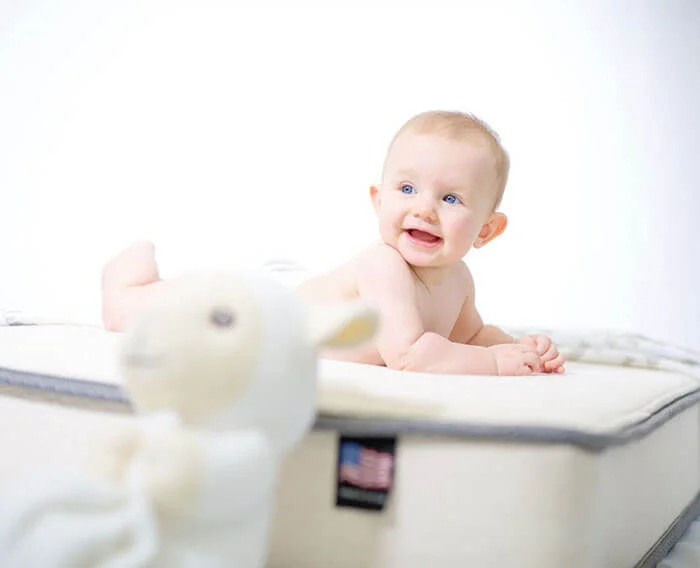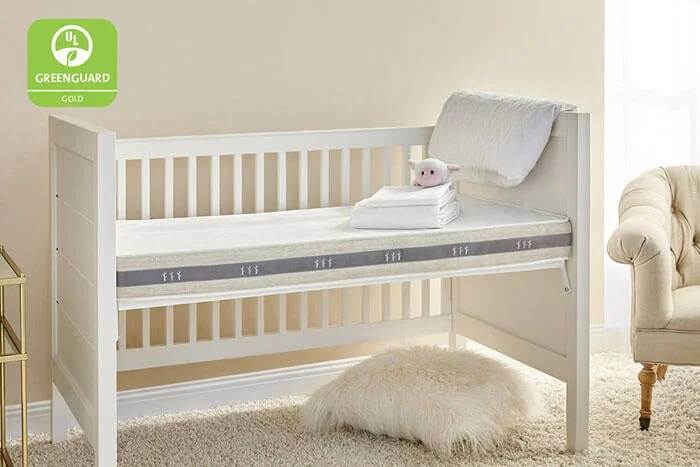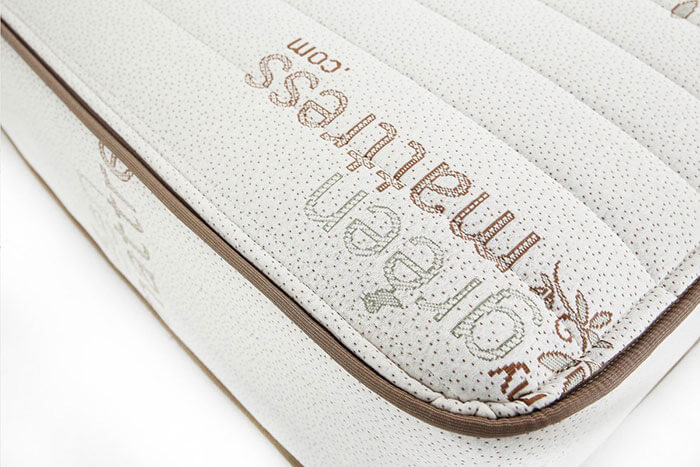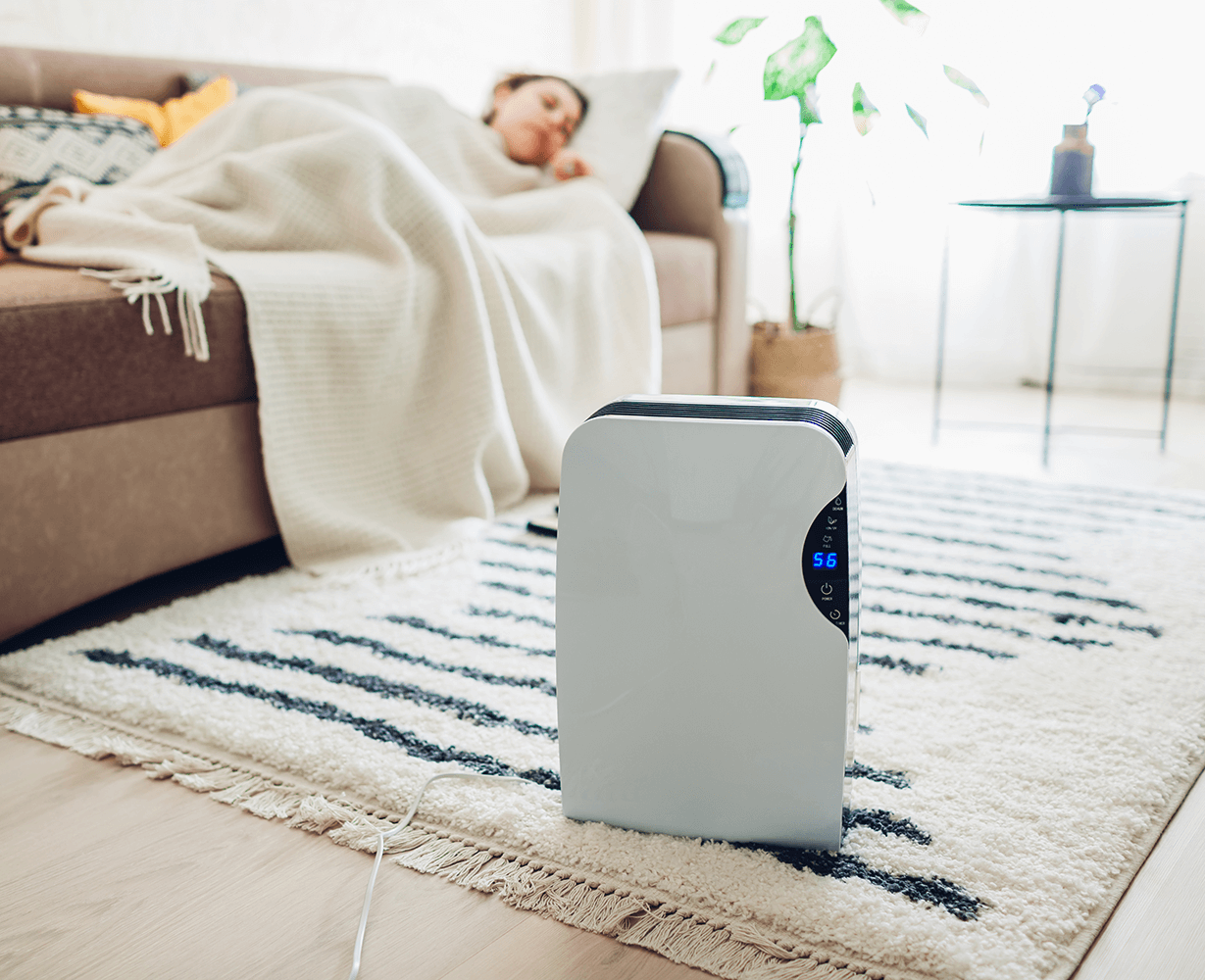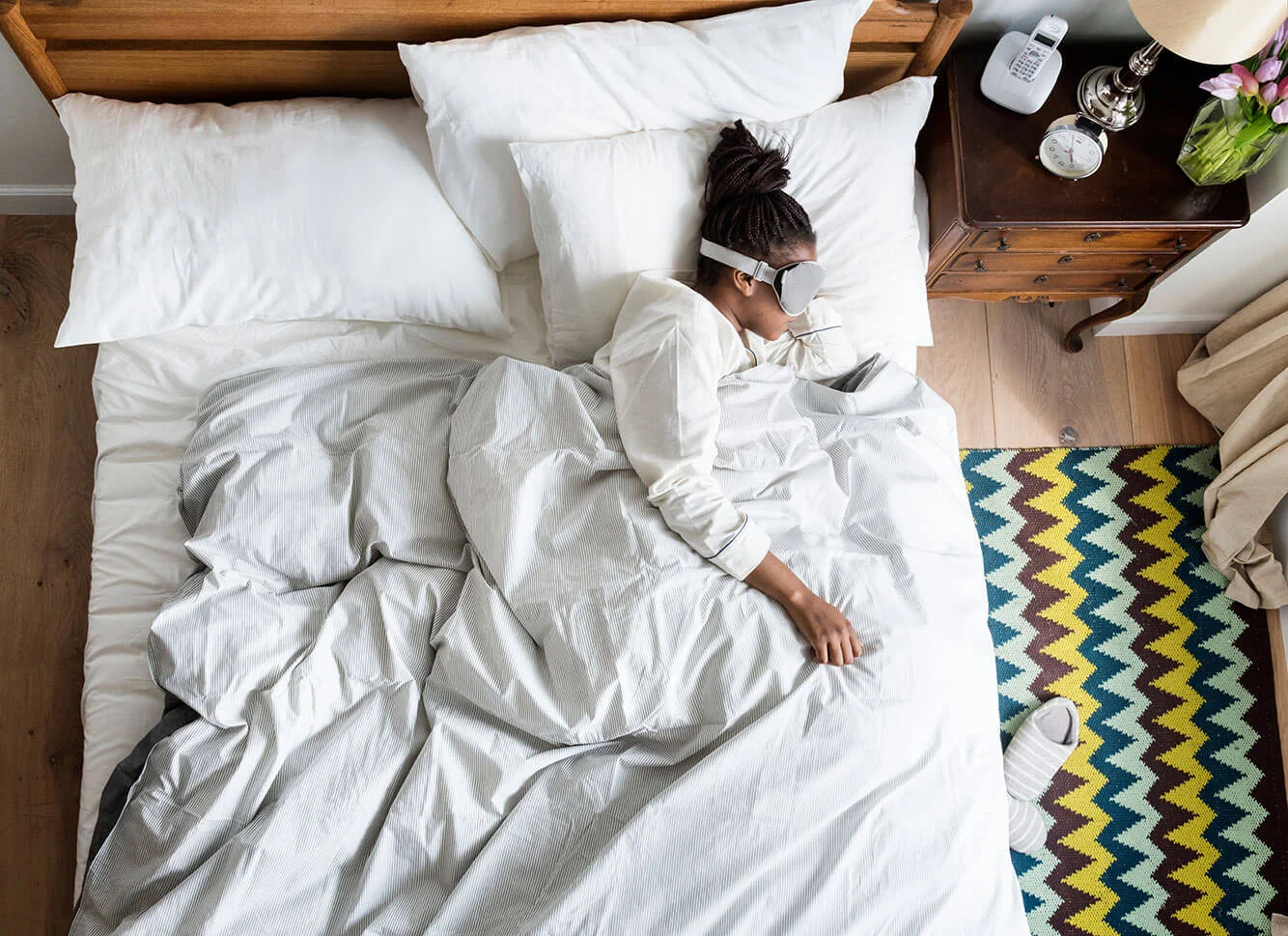Healthy Sleeping Tips For A Better Night Sleep
Babies and sleeping are two terms that don’t exactly go hand-in-hand. Most parents know that babies rarely get enough sleep and they rarely sleep when parents want them too. Baby sleep schedules are often unpredictable and most sleep sessions only last for a few hours.
There’s not a whole lot you can do to magically make your baby sleep when you do, but there are things that you can do in order to help you baby fall asleep faster and stay asleep longer. This is more important than just making sure mom and dad can get a few extra z’s at night—sleep is very important to any baby’s healthy and development—and babies need a lot of sleep.
In fact, the American Academy of Pediatrics recommends that babies get 12 to 16 hours of sleep every night. If you are trying to get your child to get better sleep at night, consider these healthy sleeping tips for your little one. They can make just enough
Swaddle
baby swaddle sleep
Swaddling has been around for a long time and has been a popular way to help newborn babies get comfortable and sleep through the night. Swaddling is common for babies up to five months old and helps them feel safe and secure.
This is because swaddling is designed to help combat your baby’s reflexes. Babies have a certain startle reflexes at this age that has them feeling like they are falling. This sensation can cause them to incidentally wake up.
Swaddling your baby can help keep them feeling safe and as though they are in the womb. The great thing about swaddling today is that there are many swaddle products that make wrapping up your baby much easier than it used to be.
Once your baby is old enough to use their arms to turn themselves over, you no longer need to swaddle them.
Feeding Schedule (Before Bed)
baby sleep schedule
Your baby’s sleep schedule can have a serious impact on their ability to fall asleep. Consistency is key when it comes to feeding your little one. Another way to help make sure that your baby is feeding at the right time is to consider “dream feeding.”
This involves feeding your baby right before you go to bed, so that your baby won’t wake up just after you fall asleep.
This isn’t a sleep schedule to maintain for a long time, but it is an option for those first few months of your baby’s life. This is a great way to make sure that you are getting sleep as a parent as well. Many parents also find this is a great way to get their baby comfortable enough to drift off to sleep.
Limit Nap Time
sleep training baby
Nap time can be great for both tired babies and tired parents. However, while nap time is important during the day (after all, many babies spend most of their days sleeping), if your child isn’t falling asleep and staying asleep at night, then nap time may be to blame.
Limiting nap time is a great way to make sure that your baby can fall asleep on time at night. There are a few ways that you can do this, however the most common way is to limit the length of your baby’s nap.
If your baby is napping for more than two hours at a time and they aren’t sleeping at night—then consider waking your baby up after about two hours to feed them. This can actually help your baby sleep better at night while increasing the number of feedings you can get in during the day.
Bring the White Noise
when do babies sleep through the night
White noise machines are a must-have for many babies and if you have never tried white noise before, it may be the magic key to getting your baby to drift off to sleep at night.
The white noise can help drown out other noises that may keep your baby up at night. If babies can hear their parents up and about, they can start to focus on where their mother or father is instead of trying to get to sleep.
It also simply drowns out noises that may startle your baby and wake them up. There are many parents who use white noise every night, especially if their baby is easily woken up.
It is also a great option if you are planning on traveling with your baby and having them sleep in a strange or new place such as a hotel—as the white noise can help limit these new distractions.
There are both white noise machines and white noise apps. However, some people get the same effect out of using a fan to create a noise distraction.
Stick to a Schedule
When it comes to babies and sleep, a set schedule is your best friend. When it comes to setting a schedule it doesn’t just involve bed time.
The right schedule should include keeping your baby regimented on when they wake up, when they eat, when they take naps and of course when they go to bed at night. All of these things go into a schedule. However, one of the most important “schedule cycles” to follow is the eat, wake, sleep cycle.
This is a simple cycle. When your baby wakes up from sleep, such as nap—they should eat right away, then they will be up and ready to “play” before they go back to sleep. When your baby wakes up from a nap, they are going to have the most energy of any time during the day. This is why they should eat at this time.
This will help your baby not only enjoy a full feeding, but wait longer during feedings and easily drift back off to sleep when it is nap time again. It’s a simple adjustment to your baby’s schedule and one that can have some serious and positive effects on their ability to fall asleep, especially during nap time.
Avoid Wet Diapers
how to get baby to sleep
If you baby seems uncomfortable when they are being laid down to sleep at night, or wakes up in the middle of the night squirming with discomfort—then make sure that you check their diapers.
A wet diaper can make any baby really uncomfortable and prevent them from being able to fall asleep. A wet diaper can also wake up a baby in the middle of the night as well.
Another way to avoid wet diapers, is to make sure that you are strategically changing your baby’s diaper. This includes changing their diaper before your middle of the night feeding.
So, right when your baby wakes up, change them and then feed them before re-swaddling them and getting them ready to go back to sleep. Otherwise, if you feed them first and then change their diaper, your baby may feel too awake and not fall back asleep as easily.
Sleep Environment
when do babies start sleeping through the night
Think about your baby’s sleep environment, particularly if they are struggling to fall asleep or stay asleep. Your baby’s sleep environment should be as comfortable as possible.
Remember, babies are very sensitive and the slightest thing can throw off their ability to fall asleep. The room should be dark and cool (about 75 degrees) with no breeze. Remember, babies shouldn’t be sleeping with blankets so they need to be comfortable without blankets to keep them warm.
Another thing to keep in mind with your baby’s sleep environment, is that they should also have a pre-sleep routine—this is true both for naps and bedtime.
This routine can be simple, including putting your baby down in their crib, closing the blinds and singing a song or turning on a white noise machine. It will help your baby know that it is time to go to bed. Your sleep routine can be as short or as long as you want.
Another thing to remember is that you as a parent can actually disrupt your baby’s sleep environment. This means not rushing in right away and disrupting your baby’s sleep the moment you see or hear them stirring. Babies wake up, babble, move around and then go back asleep quite often, just give them the opportunity to stir a bit before you rush in and disrupt their sleep environment.
Massage
baby sleeping on side
If you are looking for an all-natural solution that can help your baby drift off to sleep, you may want to try massage. These massages are light, simple and designed to help your baby relax. This is also a great time for you to bond with your baby and to make sure the two of you have one-on-one time.
Start with your baby’s feet and work your way toward their head. The massage should be light and soothing and you should talk to your baby during the entire massage to help your baby relax. The massage should be light to the touch and slow and soothing.
Seek a Pediatrician or Professional Advice
baby crying in sleep
If you are struggling with your baby’s sleep schedule and home-remedies haven’t worked, then it may be time to go talk to your pediatrician. There is nothing wrong with getting professional help over something like sleep. After all, sleep is very important for your baby’s health and well-being and your well-being as a parent.
Your pediatrician may be able to help diagnose if something more serious is going on with your baby, and whether that is the root of your child’s sleep issue.
They can also help give you additional advice on what may be preventing your child from getting enough sleep during the night. A pediatrician will be able to tell you if your child is actually getting enough sleep at night, or not. They will also be able to run tests to make sure their sleep issues aren’t a sign of a bigger, developing health problem.
Every Parent Should Consider These Healthy Baby Sleeping Tips
Every new parent knows that when you have a new baby, baby sleep is going to be hard to come by. Babies aren’t going to be on the same sleep schedule as their parents right away, and many babies struggle with getting on a sleep schedule when they first enter into the world.
While this is relatively normal, in most situations, it doesn’t mean there aren’t things that you can do as a parent to help your child get better sleep at night. Keep these tips in mind if you are struggling to help your baby get more sleep and remember, when in doubt, always go to your pediatrician for help to make sure you are doing the most you can and the best you can for your little one.
Karen A Mulvey is a personal social blogger and mom with 14 years of experience in the every day world of motherhood and sustainable product research. Karen is on a mission to help everyday families select sustainable, non-toxic organic products, stop stressing about uncertainties on sustainable home goods and apparel, and start living the life they’ve always wanted.
Follow Karen at @karenAmulveycs | Karen A Mulvey


